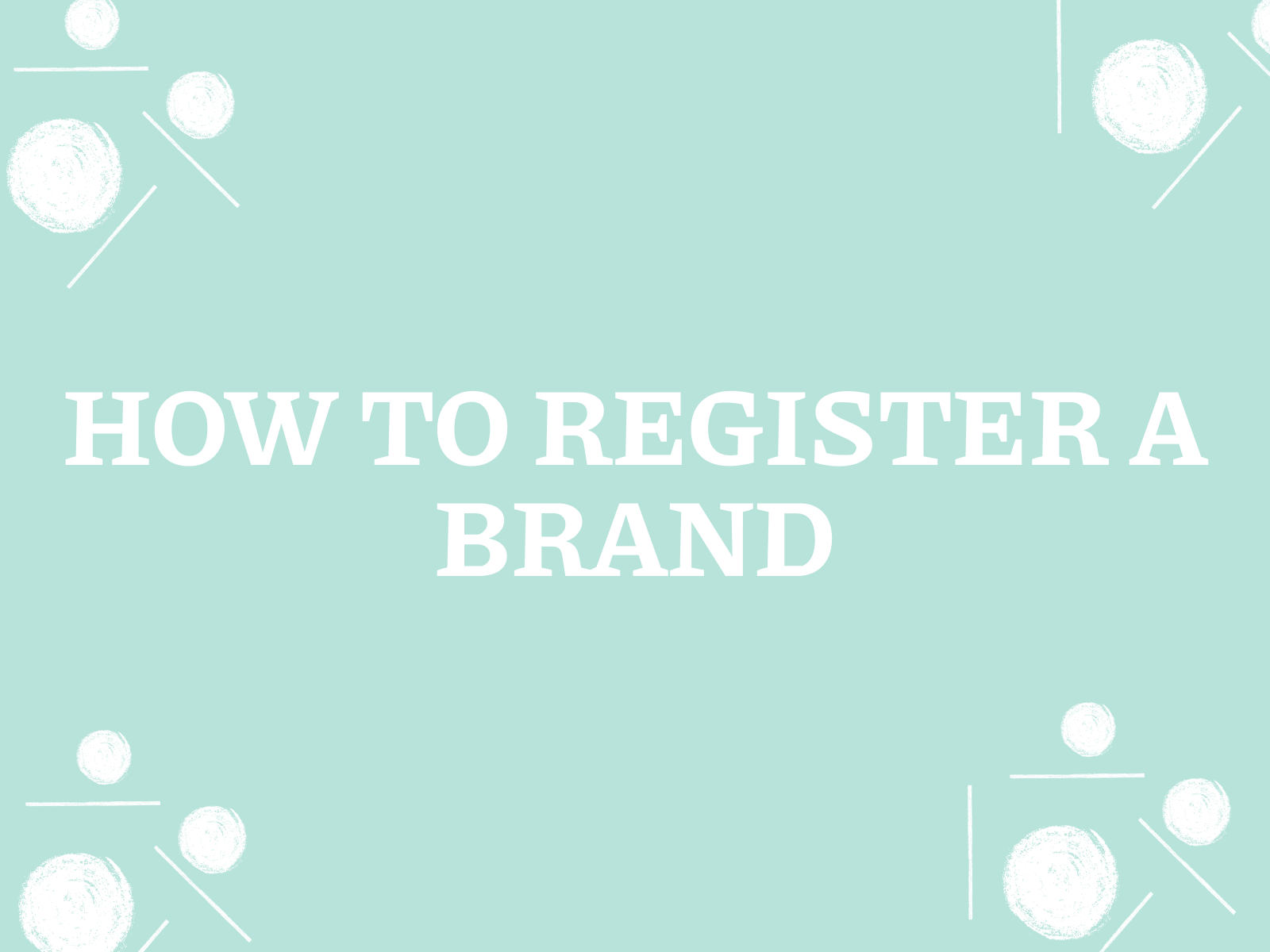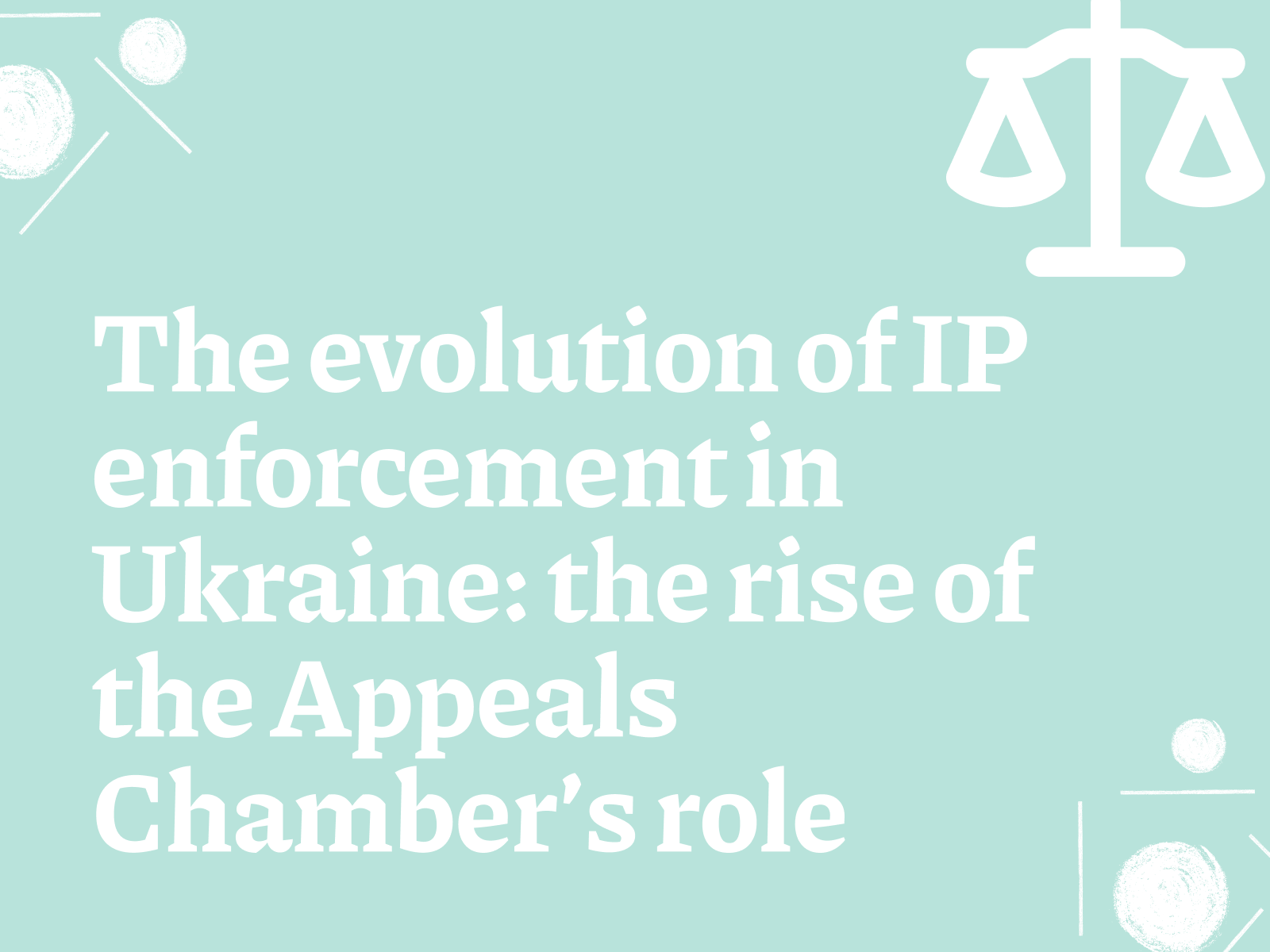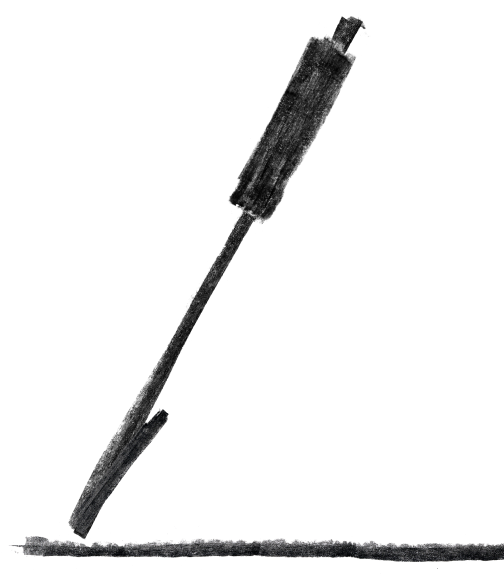Brand registration, also known as trademark registration, is a critical step to provide legal protection against infringement and guarantee the longevity of your business;
Your brand is the heart of your business. It is how customers identify you, associate you with your products and services, and build loyalty. But in a competitive marketplace, protecting your brand identity is integral to success. We detail the process of trademark registration in Ukraine and why working with an intellectual property lawyer can optimise your chances of success.
Protect your brand and secure your place in the marketplace
In today’s increasingly competitive business world, protecting your intellectual property is more important than ever. Your brand is more than just a name or logo; it is the embodiment of your reputation, product quality and customer experience. Registering your brand in Ukraine as a trade mark is a powerful legal tool that allows you to protect your brand from illegal use by competitors.
A trade mark is any sign that distinguishes the goods or services of one business from those of other businesses. It may include:
- Title (both verbal and graphic)
- Logo
- Slogan
- Colour scheme
- Beep
By registering your trade mark, you get the exclusive right to use it on the territory of Ukraine. This means that no other company can use a similar mark that may mislead consumers.
There are many good reasons to register your trade mark in Ukraine. Some of the key advantages include:
- Protection against infringement: registration provides a legal basis to fight competitors’ use of your trade mark. In the event of trade mark infringement, you can take legal action to protect your rights and obtain compensation for damages.
- Increase customer trust: A registered trade mark signals to customers that you take your business seriously and care about the quality of your products. This can help you build customer trust and brand loyalty.
- Simplifying international market entry: If you are planning to expand your business abroad, registering your trade mark in Ukraine is an important first step. This will make it easier for you to register your trade mark in other countries.
- Protecting your investment: your brand is a valuable asset to your business. Registering a trade mark helps protect your investment in branding and marketing.
Registering a trade mark is a sensible step for any business that seeks to protect its intellectual property and ensure long-term success. In the next section we will take a closer look at the criteria for trademark registration in Ukraine.
Characteristics that a trade mark must fulfil in order to be successfully registered
Not all designations can be registered as trade marks. In order for a trade mark to be registered in Ukraine, it must meet the following criteria:
- Uniqueness: a trade mark must be able to distinguish the goods or services of one enterprise from those of other enterprises. This means that it must be unique and not mislead consumers as to the origin of the product.
- Non-misleading: The TM must not mislead consumers as to the nature, quality or geographical origin of the goods or services. For example, you cannot register a trade mark that contains a false geographical indication.
- No violation of moral standards: the trade mark must not contradict the public interest, principles of humanity and morality. This means that you cannot register a trade mark that contains offensive images or words.
Restrictions on the registration of a trade mark
There are certain types of trade marks that cannot be registered in Ukraine. These include:
- Commonly used names or descriptive designations that directly indicate the type, quality or other characteristics of the goods (e.g. “milk”, “sweet”).
- National symbols, flags and emblems of countries of the world or international organisations.
- Official control and warranty marks.
- Marks identical or similar to already registered marks for the protection of well-known trade marks.
Before applying for trade mark registration, it is advisable to carry out a preliminary check to ensure that your trade mark meets all the criteria for registration. This check can help you save time and money by avoiding filing a trade mark application that is likely to be rejected.
Understanding the criteria that a trade mark must meet is a key step towards successful registration in Ukraine. In the next section we will learn about the specific procedures involved in the trade mark registration process.
Process of trade mark registration in Ukraine
How do I register my brand?
The process of registering a trade mark in Ukraine involves several steps. Here is a general overview of the procedures:
- Preparation of the application: the first step is to prepare an application for registration of the trade mark. The application must be accompanied by:
- A graphic representation of the trade mark.
- List of goods and/or services for which the trade mark will be registered, grouped according to the International Classification of Goods and Services (ICDS).
- Information about the applicant (in particular, name and legal address).
- A power of attorney for a representative (if you are using the services of a patent attorney, or a lawyer).
- Filing an application with the Ukrainian National Office of Intellectual Property and Innovation: the application is submitted directly to the Ukrainian National Office of Intellectual Property and Innovation. You can apply online via the official website or visit the institution in person.
- Formal Examination: the Ukrainian National Office of Intellectual Property and Innovations conducts a formal examination of the application, which consists in checking whether the submitted documents comply with the established requirements.
- Substantive Expertise: if the application fulfils the formal requirements, the Ukrainian National Intellectual Property Office carries out a substantive examination. This includes checking whether the criteria for trade mark registration are met and checking for possible conflicts with existing trade marks.
- Decision on registration: if the Ukrainian National Office of Intellectual Property has not identified any grounds for refusal of registration, a decision is made to register the trade mark. The applicant is issued a certificate of trade mark registration.
How much does it cost to register a brand in Ukraine and how long does it take?
The cost of trademark registration in Ukraine depends on the number of classes of goods and/or services, the amount of taxes and fees and lawyers’ fees. Detailed information on fees can be found on the official website of the Ukrainian National Intellectual Property Office.
The standard term of trade mark registration in Ukraine is from 18 to 22 months.
Although the process of registering a trade mark may seem simple, we recommend contacting a lawyer or a patent attorney specialising in intellectual property. The attorneys at Polikarpov Law Firm know the ins and outs of the legal framework and will ensure the fastest and most successful outcome by providing you with legal assistance.
The process of registering a trade mark in Ukraine requires attention to detail and compliance with certain deadlines. In the next section we will discuss the importance of protecting your brand after the registration is completed.
Conclusions
Trade mark registration is not just a formal process, but a valuable investment in the future of your business. By registering your trade mark in Ukraine, you protect your intellectual property, increase brand awareness and create a basis for long-term success.
Although it is theoretically possible to complete the registration procedure on your own, the risk of errors is quite high. To ensure effective registration, it is important to have a detailed understanding of the process, the criteria for the suitability of a trade mark for registration and knowledge of Ukrainian intellectual property law. This is where the experience of Polikarpov Law Firm lawyers can be crucial.
Our experts provide comprehensive services on registration and protection of trade marks in Ukraine. We will conduct a thorough check of your proposed trade mark, help you prepare an application and accompany you at all stages of registration.
Contact Polikarpov Law Firm today to begin this important process and get a head start on protecting your most valuable asset – your brand.
What should I do if my brand has been copied or infringed?
If your brand has been copied or infringed, a number of actions should be taken immediately to protect your rights and interests:
- Collect evidence: start collecting all available evidence of your brand infringement. This may include screenshots of web pages where your brand is being misused, copies of emails, written witness statements, and any other documents or materials that prove the infringement.
- Contact the offender: sometimes the offence may be the result of a misunderstanding or accident. The first step may be to contact the violator to clarify the situation. This can be done by sending a formal letter informing them of the infringement and demanding that they stop using your brand illegally.
- Turn to the professionals: If communication with the infringer has not resulted in a solution or if the infringement is serious, it is advisable to contact legal experts in the field of intellectual property. They can assess the situation, suggest defence strategies and represent your interests in court if necessary.
- Prepare formal notices: in depending on the jurisdiction and the nature of the breach, it may be necessary to send formal notices to the violator containing demands for cessation of the breach and settlement of damages. Depending on the jurisdiction and the nature of the breach, it may be necessary to send formal notices to the violator containing demands for cessation of the breach and settlement of damages.
- Consider legal action: If the infringer refuses to stop using your brand illegally, or if the infringement seriously affects your rights and business, you may need to take legal action. Legal experts can help you assess the situation and develop a strategy to protect your rights in court.
- Protecting your brand in the future: Once the current situation has been resolved, it is important to take steps to protect your brand in the future. This may include registering your brand under intellectual property law, installing monitoring systems to detect possible infringements and maintaining an active brand protection policy.
- Law enforcement co-operation: in the event of systematic or deliberate infringement of your brand, co-operation with law enforcement may be a necessary step to stop further infringements and bring the infringers to justice.
Can I register a brand on my own or do I need to go to a specialist?
It is possible to register a brand either independently or with the help of intellectual property specialists. However, there are a number of factors to consider when making the decision:
Register the brand yourself:
- The complexity of the process: Brand registration, depending on the jurisdiction, can be quite a complex procedure, requiring knowledge of legal rules and procedures, as well as expertise in intellectual property..
- Risks of mistakes: When registering on your own, there is a risk of making mistakes that can lead to refusal of registration or even loss of rights to the brand..
Register a brand with the help of experts:
- Professional support: Intellectual property specialists have the knowledge and experience necessary for successful brand registration. They can provide you with advice and assistance at every step of the process..
Risk minimisation: Applying to professionals allows you to minimise the risks of mistakes and increases the probability of successful registration of your brand.
- Accelerate the process: Specialists can help speed up the registration process as they are familiar with the procedures and requirements of the relevant authorities.
- Consultation and further support: In addition to registration, specialists can provide you with advice on brand protection and intellectual property protection in general, as well as support in case of disputes or infringements..
The decision whether to register a brand yourself or with the help of specialists depends on your knowledge, experience, time and resources, as well as the complexity of the registration procedure in your jurisdiction. It is also important to consider the importance of your brand and whether you want to maximise its protection. If you have any doubts or questions about the registration process, it is advisable to seek specialist advice.
What is the cost and timeframe for brand registration?
-
- The cost and timing of brand registration can vary significantly depending on the jurisdiction in which you plan to register, as well as the registration method you choose (e.g., self or specialist). Here is a general overview:
Registration cost:
- Additional costs: In addition to government fees and professional fees, there may be additional costs for translations of documents, legal advice, preparation of necessary materials, etc
- Government fees:
In most countries, government fees must be paid to apply for brand registration. These fees can vary significantly from country to country. - Specialists’ fees: If you seek the help of intellectual property lawyers, you will have to pay for their services. Fees may depend on the complexity of the process, the skill level of the professionals, and other factors..
- Additional costs: In addition to government fees and professional fees, there may be additional costs for translations of documents, legal advice, preparation of necessary materials, etc..
Registration Deadlines:
Application processing time: The time it takes to process your brand registration application can vary from 18 to 22 months, depending on the jurisdiction and the current workload of the relevant authority..
Release of Certificate of Registration:After successful completion of the registration process and payment of all required fees, you will be issued a certificate of registration for your brand. The time period for obtaining the certificate may also vary from jurisdiction to jurisdiction.
For more accurate information on the cost and timing of brand registration in your specific situation, it is recommended to consult an intellectual property specialist or familiarise yourself with the relevant legal rules and requirements in your jurisdiction
- The cost and timing of brand registration can vary significantly depending on the jurisdiction in which you plan to register, as well as the registration method you choose (e.g., self or specialist). Here is a general overview:
How does the brand registration process work?
The process of registering a brand in Ukraine involves several stages and requires certain procedures. Here is a general overview of this process:
- Preparing the application: First, it is necessary to prepare an application for brand registration. The application contains basic information about the applicant (brand owner), describes the brand itself and specifies the class of goods and/or services for which the brand is registered. The application may also require additional documents, such as samples of the logo or samples of the use of the brand.
- Application: The application for brand registration can be submitted online or in person at the Ukrainian Intellectual Property Office or its branches..
- Formal Examination: After an application is submitted, it undergoes a formal examination, during which the compliance of the application with the established requirements is checked. If the application fulfils the formal criteria, it is accepted for further consideration.
- Release of the certificate of registration: After the expiry of the period of possible objections and payment of all necessary fees, the applicant is issued a certificate of brand registration.
- Substantive Examination: The application then undergoes a substantive examination, which assesses the uniqueness and distinctiveness of the proposed brand from other brand applications already registered or filed. If there are no obstacles, the application proceeds to the next stage.
- Payment of state fee* After passing the substantive examination, the state fee for brand registration must be paid.
- Registration: The registered brand is entered into the relevant register, which confirms its legal status.
The process of brand registration in Ukraine can take from 18 to 22 months depending on the workload of the intellectual property authority. For successful completion of the registration process, it is recommended to seek advice from intellectual property specialists or lawyers specialising in this area..






